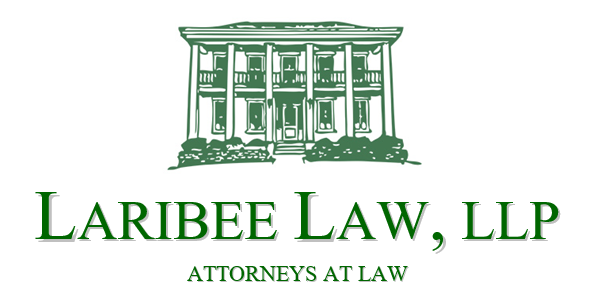Home Solicitation Sales: Are You Stuck in a Contract?
Michael L. Laribee, Esq.

On a sunny afternoon, your doorbell announces the arrival of a visitor. You find a charming young man on your front step; he greets you with a bright smile. In his hands, he holds several pamphlets; he tells you that he is visiting your neighborhood with an exciting opportunity to upgrade the windows of your home.
You invite him inside to review the pamphlets about home window replacement and repare. The salesman then examines your windows and tells you that many are failing and, if not replaced, your home will have significant water damage. After listening to his polished presentation, you decide to purchase some new windows. You sign the purchase agreement and agree to pay $15,000.00 for the entire job. The salesman thanks you graciously and indicates that installation will begin in two weeks.
Later that day, you happen to see an advertisement for the same type of windows sold through a local retail store for a much cheaper price. Further, the retail store offers free installation.
Are you stuck in your contract with the salesman?
What if you simply change your mind after the salesman leaves?
The Home Solicitation Sales Act in Ohio provides protection to consumers in just such an event.
The Act covers door-to-door sales of consumer goods or services in which the seller engages in a personal solicitation of the sale at the residence of the buyer.
It even includes solicitations made in response to an invitation by the owner. The purpose of the Act is to protect consumers against pressure to make an immediate purchase when a salesperson appears at their home or where the sales pitch is given at a non-business location.
Consumer goods or services are defined as those purchased, leased, or rented primarily for personal, family, or household purposes, including courses of instruction or training. Ohio courts have overwhelmingly ruled that home improvement sales are covered.
There are a number of requirements which regulate the terms and manner of entering into a home solicitation sales contract. The agreement must be in writing (in the same language as the presentation) and must contain the seller's name and address, the buyer’s signature, and the date. The seller must leave the buyer a copy of the signed written agreement.
Arguably, the most important protection of the Act is the buyer’s right to cancel a home solicitation sale until midnight of the third business day after signing a contract. The notice of the right to cancel must be included in writing on the contract, in bold-face type of the minimum size of ten points, located near the buyer’s signature. The salesperson must also orally explain the right to cancel to the buyer.
The contract must also include a form, in duplicate, captioned “notice of cancellation,” which the buyer can easily detach and use if necessary. Cancellation is complete when the buyer gives written notice of cancellation to the seller at the seller's address, e-mail address, or fax number stated in the contract. The seller may not begin work under the contract during the three-day period.
After canceling a home solicitation sale, a buyer must make available to the seller any goods provided during the sale. The goods must not be damaged or subjected to unreasonable wear or use. The buyer is not obligated to make the goods available at any place other than buyer’s home. If the seller fails to pick them up within twenty days of the cancellation, the goods become the property of the buyer without obligation to pay for them.
Contrary to common opinion, the Home Solicitation Sales Act does not cover all contracts. The Act expressly excludes sales in which the total purchase price is less than twenty-five dollars. Also, it does not cover sales conducted entirely by mail or by telephone if initiated by the buyer without any other contact prior to the delivery of goods or performance of the service. Likewise, the Act does not apply to sales where the final agreement is made after a visit by the buyer to a retail business at a fixed permanent location where the goods are exhibited for sale on a continuing basis.
The following goods or services are specifically excluded from the Act’s protection:
- Sales or rentals of real property by a real estate broker or salesperson
- The sale of securities or commodities by a securities dealer or broker-dealer
- The sale of insurance by a licensed agent
- Goods sold or services provided by licensed automobile dealers and salespersons
- The sale of property at an auction by a licensed auctioneer
The Home Solicitation Sales Act can be very strict in its application and it provides a narrow and time-limited exception to the basic rule that parties are bound to the terms of the agreements they sign. It is important that you not delay in consulting with an attorney to see whether your home solicitation sale is covered. Failure to properly and timely cancel a home solicitation sale would result in a binding contract - even if you no longer want the windows.
Have legal questions? The experienced attorneys at Laribee Law, LLP are ready to assist you.
Our Location:
325 N. Broadway Street
Medina, Ohio 44256
NOTE: The use of the Internet for communications with the firm will not establish an attorney-client relationship and messages containing confidential or time-sensitive information should not be sent.
The information you obtain at this site is not, nor is it intended to be, legal advice. You should consult an attorney for individual advice regarding your own situation.


